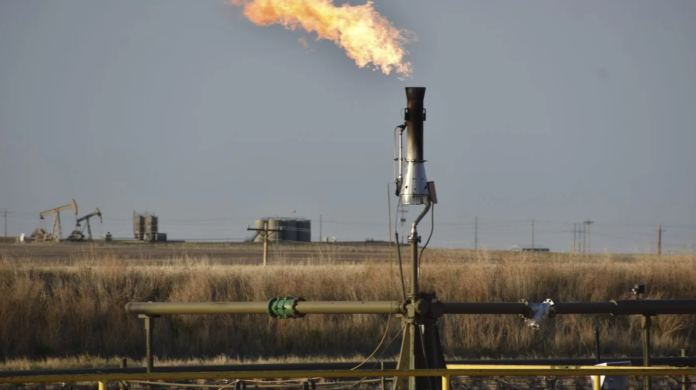In a world increasingly alarmed by the climate crisis, the United States, led by the fossil fuel industry’s relentless expansion, is charting a course that starkly contradicts global pleas for environmental sustainability. Recent commitments by fossil fuel-producing countries to shift away from non-renewable energy sources seem more like lip service when contrasted with the actions of industry giants, particularly in the U.S., where the mantra appears to align more closely with Amin Nasser’s, the CEO of Saudi Aramco, who recently dismissed the idea of phasing out oil and gas as a mere “fantasy.”
A troubling report from Global Energy Monitor (GEM) reveals a stark reality: the U.S. is at the forefront of sanctioning new oil and gas projects, blatantly disregarding the International Energy Agency’s (IEA) warning that such endeavors are incompatible with limiting global warming to 1.5°C. Over the past year, the world has seen at least 20 oil and gas fields receiving the green light for construction and development, signaling a collective intent to extract an alarming 8 billion barrels of oil equivalent (boe).
The projections for the end of the decade are even more daunting, with plans to produce 31.2 billion boe from 64 fields. This surge in fossil fuel projects spearheaded by the U.S. directly contributes to a potential emission of at least 14.1 billion tonnes of carbon dioxide, undermining global efforts to combat climate change.
This relentless pursuit of fossil fuel extraction finds its justifications in what GEM terms “extraction justifications,” rationalizations that range from purportedly superior environmental track records to economic arguments that exploit the vulnerabilities of indigenous populations. Meanwhile, oil executives, confronted with the growing demand for sustainable energy, paradoxically claim that the shift towards renewables is hindered by the public’s reluctance to bear the costs, despite polls indicating strong support among Americans for alternative energy sources and a willingness to pay more for renewables.
The dichotomy between public sentiment and the actions of the fossil fuel industry highlights a troubling disconnect, with 67% of Americans favoring the development of renewable energy sources, according to Pew Research Center. Yet, the industry, backed by certain policymakers, marches on with its expansion, blatantly ignoring the dire warnings of climate scientists and the IEA.
As the planet edges closer to irreversible damage, the justification for new oil and gas projects crumbles under the weight of scientific consensus, which unequivocally states that no new fossil fuel fields can be developed if we are to avoid catastrophic climate change. The industry’s stubborn insistence on pursuing these projects is not just a denial of the climate emergency—it’s a deliberate act of endangerment.
Bill McGuire, a climate scientist and writer, poignantly captures the industry’s attitude: “Climate emergency? What climate emergency?” This rhetorical question lays bare the profound crisis of priorities facing our world today. The continued push for fossil fuel development, despite clear evidence of its devastating impact on the planet, is nothing short of insanity. As the U.S. leads the charge in this dangerous direction, the call for urgent action and a realignment of our energy priorities has never been more critical.



